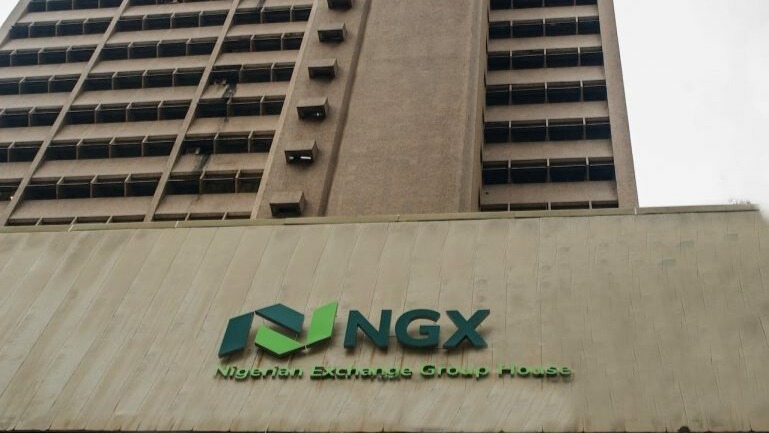NGX Celebrates Record-Breaking Growth, Surges Past 102,000 Points Amid Robust Reforms

The Nigerian Exchange Limited (NGX) has achieved a remarkable resurgence, overcoming the sluggish performance of the 2015–2019 era to emerge as one of Africa’s most dynamic stock markets.
The oil price crash of 2015 and the subsequent recession of 2016 had cast a shadow over the exchange’s prospects.
However, the 2020s have ushered in an era of unprecedented growth, driven by strategic reforms and favourable macroeconomic conditions.
The NGX All-Share Index (ASI) has posted a staggering return of 283.45% since 2020, rising from 26,842.07 points at the end of 2019 to an impressive 102,926.40 points as of December 2024.
Highlight years, including 2020, 2023, and 2024, showcased substantial investor interest in equities, spurred by negative yields in the fixed-income markets. The index closed 2024 with a robust annual growth rate of 37.65%.
Key macroeconomic reforms by the Central Bank of Nigeria (CBN) and the Federal Government have bolstered the stock market, with naira depreciation playing a pivotal role in boosting foreign capital inflows.
From a mere 4% in mid-2023, foreign capital inflows surged to an average of 16% by November 2024.
Additionally, high-profile listings have invigorated trading activities, offering investors a wider selection of blue-chip stocks.
Notable new entrants such as Geregu Power Plc, Transcorp Power Plc, Aradel Holdings, and BUA Foods have significantly contributed to the market’s momentum.
These developments have driven market capitalisation from N12.79 trillion at the end of 2019 to a record-breaking N62.76 trillion by December 2024, reflecting an extraordinary growth of N49.97 trillion.
Speaking at the Closing Gong Ceremony for 2024, NGX’s Chief Executive Officer, Mr. Jude Chiemeka, represented by Mr. Abimbola Babalola, Head of Trading and Products, commended stakeholders for their pivotal roles.
He lauded the stockbroking community, represented by the Chartered Institute of Stockbrokers (CIS) and the Association of Securities Dealing Houses of Nigeria (ASHON), for their commitment.
“The year 2024 witnessed significant activity in the secondary market, a testament to the efforts of our trading licence holders. Complementary macroeconomic fundamentals were instrumental, and we appreciate the impactful policymaking by the CBN and the Federal Ministry of Finance.
“We also commend the Securities and Exchange Commission for its effective oversight, especially during the smooth banking recapitalisation process,” he stated.
CIS President, Mr. Oluropo Dada, and ASHON Chairman, Mr. Sam Onukwue, represented by Mrs. Ify Rita Ejezie, acknowledged the vital role of stockbrokers in driving growth.
They reaffirmed their commitment to advocating for policies that foster market development.
Despite its impressive performance, Nigeria’s capital market faces lingering challenges.
According to Proshare’s 2025 market outlook, high transaction costs, information asymmetry, low trading volumes, and wide bid-ask spreads continue to hamper liquidity.
However, the report emphasised the potential of listing national assets, such as NNPC, to unlock liquidity and stimulate both domestic and foreign investment.
Reflecting on the exchange’s trajectory, Temi Popoola, GMD/CEO of Nigerian Exchange Group, remarked, “Nigeria’s capital market has proven itself as a hub of resilience and innovation, consistently offering valuable opportunities for investors.
“The strong performance of our blue-chip companies over the past decade has been a key driver of returns, even amid challenging economic cycles.”
He further highlighted the transformative impact of policy reforms, noting, “Macroeconomic shifts, particularly in the oil and gas sectors and currency devaluation, have been transformative. These changes, coupled with the liberalisation of exchange rates, have enhanced operational efficiency and contributed to the robust performance of listed companies.
“As we approach 2025, we remain optimistic that continued reforms and a stable macroeconomic environment will sustain growth, boost liquidity, enhance investor confidence, and deliver long-term value for all market participants.”
With a strong foundation built on reforms and innovation, NGX looks poised for sustained growth as it enters 2025.
Market stakeholders and policymakers alike remain committed to ensuring the exchange’s continued relevance as one of the key drivers of Nigeria’s economic development.







